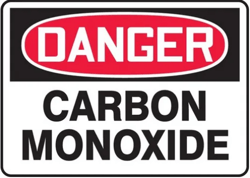



The sound of blowing gas
A peculiar or unfamiliar odor
Dirt being blown in the air
Water bubbling or being blown in the air where there is standing water
Dead or dying vegetation
If You Suspect a Gas Leak
You are responsible for your own underground piping. UniGas does not regularly patrol and maintain piping past its gas meter. If your buried piping is not maintained, it may be subject to the potential hazards of corrosion (if metallic) and leakage. Buried gas piping should be (1) Periodically checked for leaks; (2) Periodically inspected for corrosion if the pipe is metallic; and (3) Repaired if any unsafe condition is discovered. When excavating near buried piping, the piping should be located in advance, and excavation done by hand. Utility companies, plumbers and heating contractors can assist in locating, inspecting, and repairing the customer’s buried piping. If UniGas installs the underground piping between its meter and the point of entry into your home or business, then we will make repairs as necessary to maintain your service (if you wish us to do so). If the repairs are required within one (1) year following installation due to an installation or material defect, there will be no charge of the repairs (no other warranties, express or implied are made and UniGas will not be responsible for any consequential damages beyond the cost of any gas that is vented).
At no charge to the customer, UniGas will conduct a leak survey at the customer’s request, should the customer suspect a gas leak.
At no charge to the customer, UniGas will attempt to locate a leak inside the customer’s premises. If the repair involves no more than tightening a loose fitting, then UniGas will do so at no charge. If additional work is required, however, UniGas may have to interrupt service to the customer until repairs can be made.
What is carbon monoxide?
Carbon monoxide (CO) is a poisonous gas that is colorless, odorless, tasteless and non-irritating. When breathed, CO combines with the blood and prevents it from absorbing oxygen. This can cause unconsciousness, illness, and even death.
What are the symptoms of carbon monoxide poisoning?
Prior to becoming unconscious, victims of CO poisoning often exhibit some or all of the following symptoms:
How can you tell if carbon monoxide is present in your home?
Watch for signs that a fuel-burning appliance is not receiving enough fresh air for complete burning. These include unusually high indoor humidity with persistent heavy condensation on walls and windows, and stuffy or stale indoor air.
What to do if you suspect carbon monoxide in your home.
Get everyone (including pets) out of the house, call a qualified heating or plumbing technician for an emergency inspection, and don’t return to your house until the source of the CO has been discovered and the problem corrected.
If I smell gas, is that the same as carbon monoxide?
No. Carbon monoxide is odorless. Natural gas has a distinct odor that UniGas adds to make it easy to detect. Unlike CO, natural gas is not toxic.

The best precautions against CO buildup are to:
Have all fuel-burning equipment installed and regularly inspected by a qualified technician.
Make sure all fuel-burning equipment and appliances are properly vented to the outdoors and in good operating condition.
Keep vents and chimney clear of debris or other blockages.
Visually inspect all fuel-burning appliances regularly to see that they are operating properly. There should be no accumulations of soot or water near a burner or vent.
Never operate an automobile, lawn mower, or any combustion engine, barbecue grill, or similar equipment in an enclosed area, even with the door open.
Never warm a room with your gas range, oven or gas clothes dryer.